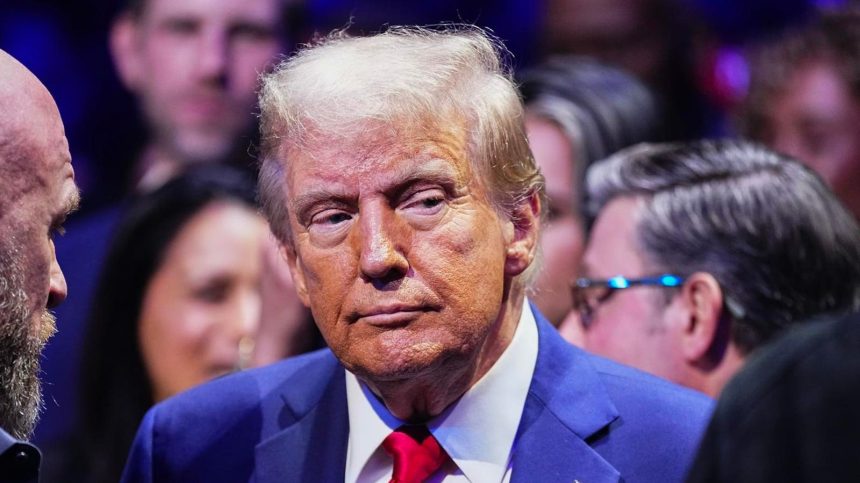In a significant legal maneuver, President-elect Donald Trump has requested the dismissal of his criminal charges in Georgia, leveraging his recent presidential victory as a basis for his appeal. Trump’s legal team filed a motion with a Georgia state appeals court, seeking to disqualify Fulton County District Attorney Fani Willis from overseeing the broader criminal case against him. This plea centers on the argument that Willis’s ongoing investigation and indictment against Trump and several associates—stemming from their alleged efforts to overturn the 2020 election results—should be halted due to Trump’s imminent inauguration. This Georgia case has now taken precedence as Trump’s sole remaining indictment, especially after setbacks to other criminal indictments he faced preceding his election.
Trump’s lawyers argue that, upon his inauguration, the charges against him should be considered null and void based on the Constitution’s Supremacy Clause, which grants protection to a sitting president against criminal prosecution. They assert that Trump’s status as president should afford him immunity from these state-level charges, a concept supported by the Justice Department’s policy that discourages prosecuting sitting presidents. The lawyers further contend that the appeals court should dismiss their appeal, postulating that jurisdiction is lost because Trump will soon occupy the presidential office. They urge the lower trial court to discard all charges against him entirely, thus effectively ending the case before it can proceed to trial.
The Georgia indictment, which has been at a standstill for several months while the appeals court deliberates on whether to disqualify Willis due to her personal relationship with a former lead prosecutor, remains the only legal challenge not yet mitigated by Trump’s electoral success. Previously, two federal cases against Trump were dismissed following his election, while his sentencing in a separate, criminal case in Manhattan continues to be postponed indefinitely. Trump’s opponents had hoped to bring the Georgia case to trial this summer, but the ongoing disputes over the jurisdiction and various appeals have stalled the legal proceedings.
Looking ahead, it is uncertain when the appeals court might render a decision regarding Trump’s request to dismiss the charges. But with Inauguration Day approaching, there is a heightened expectation that a ruling will be issued within weeks. Even if the court decides not to dismiss the indictment, legal analysts predict that the proceedings may be delayed, potentially postponing any trial until at least 2029 due to the Constitutional protections afforded to a sitting president. Furthermore, other defendants implicated in the same Georgia case—such as ex-attorney Rudy Giuliani and former White House Chief of Staff Mark Meadows—are likely to face their cases independently of Trump’s potential trial and may continue to experience legal repercussions even if Trump’s charges are dropped.
An intriguing legal question arises if the appeals court does not side with Trump. Should the charges remain intact, Trump would not possess the authority to pardon himself for these state-level offenses, as presidential pardons apply exclusively to federal charges. This unique situation underscores the complexities involved in Trump’s legal battles, as he may find himself entangled in judicial proceedings quite distinct from the federal charges he previously faced.
Adding another layer of complexity, Trump’s former attorney Kenneth Chesebro recently sought to withdraw his guilty plea linked to the same case in Georgia. Chesebro had previously accepted a plea deal centered around conspiracy to commit filing false documents, which resulted in the dropping of additional charges against him. However, he now argues that his plea should be negated following the court’s dismissal of similar charges against other defendants. This development sends ripples through the ongoing case, further complicating the legal landscape Trump faces.
The backdrop of Trump’s legal struggles includes an August 2023 indictment in Georgia encompassing 13 felony counts, of which two were subsequently dismissed. The allegations detail a supposed coordinated scheme involving Trump and his allies aimed at undermining the legitimacy of the 2020 election results. All along, Trump has maintained a stance of innocence, framing both this case and his other legal challenges as politically motivated “witch hunts” intended to undermine his viability as a candidate. Meanwhile, the legal landscape continues to shift dramatically as the interplay between Trump’s political ambitions and the ongoing judicial processes unfolds. As he navigates these challenges, Trump seeks to ensure that his path to the presidency remains unimpeded amid significant legal battles looming over him.



